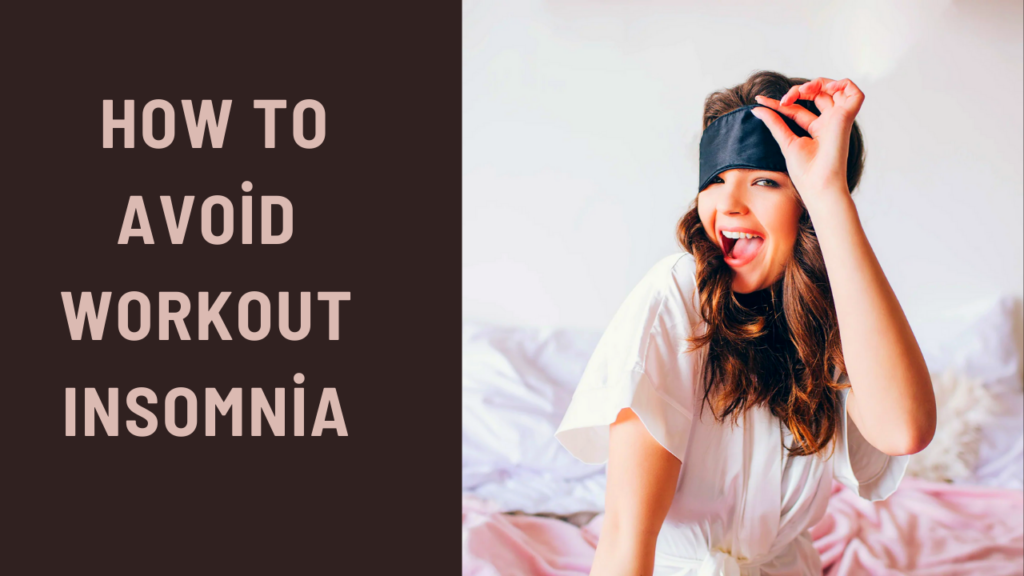
Sleep and exercise go hand in hand—staying active can improve sleep quality, boost energy levels, and enhance overall well-being. But what if your workout is actually keeping you up at night? If you’ve ever found yourself tossing and turning after an evening sweat session, you may be experiencing workout insomnia.
This article explores how exercise affects sleep, why some people struggle to rest after working out, and what you can do to prevent workout-induced insomnia.
Why Does Exercise Impact Sleep?
Regular physical activity is one of the best natural sleep aids. It can help prevent workout insomnia by promoting relaxation and regulating sleep cycles. It helps regulate circadian rhythms, reduces stress, and promotes deep sleep. However, the timing and intensity of your workout play a crucial role in how it affects your ability to fall asleep.
Some reasons why exercise might disrupt sleep include:
- Increased Heart Rate and Adrenaline Levels – Intense workouts stimulate the nervous system, making it harder for the body to wind down.
- Elevated Cortisol Levels – Exercise triggers the release of cortisol, a stress hormone that can interfere with melatonin production.
- Body Temperature Rise – Physical activity increases core temperature, which needs time to drop for restful sleep.
While these effects are temporary, they can impact sleep if you exercise too close to bedtime, leading to workout insomnia.
Best and Worst Times to Work Out for Better Sleep
Finding the right time to exercise can significantly improve sleep quality. Here’s how different workout times may affect your rest:
- Morning Workouts – Exercising in the morning can help regulate your body clock, improve energy levels, and promote better sleep at night.
- Afternoon Workouts – This is an ideal time to exercise since the body’s temperature is higher, reducing the risk of sleep disruption.
- Evening Workouts – While some people tolerate evening exercise well, high-intensity workouts late at night may interfere with falling asleep.
Tip: If you prefer working out in the evening, aim to finish your session at least 2-3 hours before bedtime to allow your body to relax.
How to Prevent Workout Insomnia
If exercise is keeping you awake at night, try these science-backed strategies to ensure a good night’s rest:
1. Adjust Your Workout Intensity
Strenuous workouts close to bedtime can overstimulate your body. Consider switching to low-impact exercises like:
- Yoga
- Stretching
- Light walking
2. Optimize Your Cool-Down Routine
A proper cool-down helps your body transition from activity to rest. Include:
- Gentle stretching
- Deep breathing exercises
- Meditation
3. Stay Hydrated, But Time It Right
Dehydration can impact sleep quality, but drinking too much water before bed can lead to frequent nighttime bathroom trips. Drink plenty of water throughout the day and reduce intake an hour before sleep.
4. Create a Relaxing Bedtime Routine
Help your body recognize when it’s time to sleep by:
- Dimming the lights
- Avoiding screens an hour before bed
- Reading or practicing mindfulness
5. Watch Your Diet Post-Workout
Avoid heavy meals, caffeine, or alcohol late at night, as they can disrupt sleep cycles. Opt for sleep-friendly snacks like:
- A banana with almond butter
- A handful of nuts
- A small bowl of Greek yogurt with honey
When to Seek Professional Help
If you’ve tried adjusting your workout schedule and bedtime habits but still struggle with insomnia, it may be worth consulting a sleep specialist. Chronic sleep disturbances could indicate underlying issues like sleep apnea, anxiety, or hormone imbalances.
Final Thoughts: Finding the Right Balance
Exercise is a powerful tool for improving sleep, but timing and intensity matter. Finding the right balance can help you avoid workout insomnia. By making small adjustments—like scheduling workouts earlier in the day, incorporating relaxation techniques, and optimizing your bedtime routine—you can enjoy the benefits of physical activity without sacrificing quality sleep.
If you want to dive deeper into sleep optimization and fitness, check out our other articles for expert tips on maximizing your health and well-being.
Insomniac: The Ultimate Sleep Therapy
If you struggle with chronic sleep issues, Insomniac: The Ultimate Sleep Therapy is your ultimate guide to overcoming insomnia. This powerful eBook covers everything from the science behind sleep disorders to natural and artificial remedies, lifestyle modifications, and techniques to help you finally switch off at night.
What You’ll Learn:
- How insomnia affects your brain and body
- The best natural and medical treatments for sleep issues
- Lifestyle changes that promote deep, restful sleep
Bonus Inclusions:
- Insomniac Checklist ($7 Value)
- Insomniac Mindmap ($9 Value)
For just $32.05, you can finally take control of your sleep and wake up feeling refreshed. Don’t let workout insomnia or any other sleep issue hold you back—invest in your well-being today!
Pingback: How to Get Out of Depression Funk